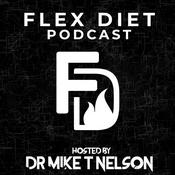94 episodes
- Welcome to Ozempic Weightloss Unlocked, where we dive into the latest news and updates on Ozempic, from its medical uses to its effects on lifestyle and health.
Ozempic, containing semaglutide, mimics a natural hormone called GLP-1 to release insulin, steady blood sugar, slow digestion, and curb appetite, helping listeners feel full longer. GoodRx reports that studies show people on Ozempic lose six to seven percent of body weight, while Wegovy users average fifteen percent.
Recent Cochrane reviews commissioned by the World Health Organization, released February eleventh, twenty twenty-six, confirm GLP-1 drugs like Ozempic deliver meaningful weight loss. Semaglutide leads to about eleven percent reduction after six to seventeen months, with benefits lasting up to two years if continued. Tirzepatide in Mounjaro and Zepbound shows even higher losses around sixteen percent, though more research is needed. Liraglutide offers four to five percent loss.
Real-world evidence from Applied Clinical Trials highlights heterogeneous results, typically four to twelve percent loss at six to twelve months. For a twelve percent drop, the drug accounts for sixty-three percent, with context like persistence, lifestyle, and care making up thirty-seven percent. Improving persistence could boost outcomes further.
Many hit an Ozempic plateau after twelve months, per GoodRx. Factors include dose, timing, diet, exercise, stress, and other meds like sulfonylureas or antidepressants. Pair it with avoiding fried foods, high-fat items, sugary drinks, and ultra-processed foods for best results.
Rutgers Health research in the Journal of Medical Internet Research finds sixty-seven percent of users report weight loss or less appetite despite side effects like nausea, prioritizing effectiveness to keep going. However, stopping leads to regain, though half maintain some loss after a year.
Watch for Ozempic face, gauntness from facial fat loss, as noted in a PMC study, so discuss screening and diet with doctors.
These updates show Ozempic transforms lives when combined with healthy habits, but long-term independent data is key.
Thank you listeners for tuning in. Subscribe for more insights. This has been a Quiet Please production, for more check out quietplease.ai.
Some great Deals https://amzn.to/49SJ3Qs
For more check out http://www.quietplease.ai
This content was created in partnership and with the help of Artificial Intelligence AI Ozempic Secrets: Weight Loss, Nutrition Risks, and Breakthrough Strategies Revealed
2026/2/10 | 2 mins.Welcome to Ozempic Weightloss Unlocked, where we dive into the latest on Ozempic from medical breakthroughs to real-life health impacts.
Recent research from the University of Cambridge highlights a key nutrition risk with Ozempic and Wegovy. These drugs slash calorie intake by sixteen to thirty-nine percent by mimicking glucagon-like peptide-one, curbing appetite and boosting fullness. But without proper guidance, users risk muscle loss up to forty percent of total weight shed and deficiencies in protein, vitamins, and minerals, leading to fatigue, hair loss, or weakened immunity. Experts like Doctor Marie Spreckley urge structured nutrition support, drawing from bariatric surgery principles: prioritize nutrient-dense foods and high-quality protein spread across meals. Doctor Adrian Brown from University College London notes most users, about ninety-five percent in the United Kingdom, get these privately without follow-up, unlike National Health Service programs pairing them with diet and exercise.
Sex differences are emerging too. A study in PubMed Central reports glucagon-like peptide-one receptor agonist use surged from twenty nineteen to twenty twenty-two, especially among women, where obesity links strongly to prescriptions and yields greater weight loss, like fifteen point three kilograms in semaglutide trials.
Looking ahead per GoodRx projections for twenty twenty-six, Ozempic is under Food and Drug Administration review for peripheral artery disease, improving walking in diabetes patients, and heart failure with preserved ejection fraction. Higher Wegovy doses up to seven point two milligrams could hit nearly twenty-one percent weight loss. Exciting combos like CagriSema show twenty-three percent loss in trials, outpacing rivals. Oral options expand too: Wegovy pills launched this year, and orforglipron may approve mid-year, easing access without needles.
The Food and Drug Administration warns against unapproved versions mimicking semaglutide, sold illegally online. Experts from George Mason University, like Martin Binks and Raedeh Basiri, stress holistic care: pair drugs with dietitians, exercise, and mental support to avoid regain, as a twenty twenty-six BMJ review notes two-thirds weight return within a year off meds.
Ozempic transforms lives but thrives with lifestyle integration for lasting health.
Thanks for tuning in, listeners. Subscribe for more updates. This has been a Quiet Please production. For more, check out Quiet Please dot ai.
Some great Deals https://amzn.to/49SJ3Qs
For more check out http://www.quietplease.ai
This content was created in partnership and with the help of Artificial Intelligence AIHere's an SEO-optimized podcast episode title: Ozempic 2026: Breakthrough Weight Loss Secrets and Surprising Health Impacts
2026/2/07 | 3 mins.Welcome to Ozempic Weightloss Unlocked, the podcast where we dive into the latest breakthroughs and real-world impacts of one of medicine's most talked-about medications. I'm your host, and today we're exploring what's happening right now in February 2026.
Let's start with the basics. Ozempic, which contains semaglutide, works by mimicking a hormone called glucagon-like peptide-1. It stimulates insulin when blood sugar rises, suppresses appetite signals in your brain, and slows how quickly your stomach empties. This combination makes you feel fuller longer and dramatically reduces cravings.
The weight loss results speak for themselves. Most listeners using Ozempic can expect to lose around fifteen to twenty percent of their body weight. In head-to-head comparisons, patients achieved an average of thirteen point seven percent weight loss over seventy-two weeks. Real-world data shows approximately eight point three percent weight loss at twelve months.
Now here's something critical that researchers at the University of Cambridge recently warned about. When calorie intake drops by sixteen to thirty-nine percent, which is exactly what happens on these medications, many patients aren't receiving adequate nutrition guidance. Without proper support, you risk muscle loss, vitamin deficiencies, and nutrient gaps that can affect energy, hormone regulation, and even your hair health.
One major change coming soon: generic Ozempic will likely be available starting March 2026, dropping prices from eight thousand eight hundred to eleven thousand one hundred seventy-five rupees monthly down to three thousand six hundred to five thousand rupees. This could transform access for millions of listeners.
But here's what you need to know about stopping. According to the STEP trial extension, when people stopped semaglutide after sixty-eight weeks, they regained approximately two-thirds of their lost weight within one year. A January 2026 study published in the British Medical Journal found patients regain weight at zero point four kilograms per month after discontinuing treatment.
The cardiovascular benefits are remarkable though. Research shows up to eighteen percent reduction in serious cardiovascular events like heart attacks and strokes, and these benefits occur regardless of how much weight you lose.
The FDA has received over six hundred adverse event reports associated with compounded versions of semaglutide, with serious incidents including severe nausea, vomiting, and abdominal pain. This underscores why getting your medication from approved sources and under proper medical supervision matters.
Moving forward, experts stress that Ozempic works best as part of a comprehensive strategy. That means working with your healthcare provider, consulting a registered dietitian about protein intake and micronutrients, and maintaining physical activity. This isn't a standalone solution, listeners. It's one powerful tool in a larger toolkit.
Thank you for tuning in to Ozempic Weightloss Unlocked. Please subscribe so you don't miss our next episode covering emerging developments in weight loss science. This has been a Quiet Please production. For more, check out quietplease dot ai.
Some great Deals https://amzn.to/49SJ3Qs
For more check out http://www.quietplease.ai
This content was created in partnership and with the help of Artificial Intelligence AI- Welcome to Ozempic Weightloss Unlocked, the podcast where we dive deep into the latest developments surrounding Ozempic and how it's reshaping conversations about weight management and health. I'm your host, and today we're exploring what's new in the world of this groundbreaking medication.
Ozempic, originally developed as a treatment for type two diabetes, has become one of the most talked about medications in recent years. What started as a diabetes management tool has evolved into something much broader, with millions of people exploring its potential for weight loss and metabolic health.
Recent clinical data continues to show impressive results. Studies indicate that individuals using Ozempic have experienced significant weight reduction, with some participants losing up to fifteen percent of their body weight over the course of a year. But beyond the numbers, we're seeing real conversations about how this medication is affecting people's lives and relationships with food.
The landscape around Ozempic is changing rapidly. Healthcare providers are becoming more informed about appropriate prescribing practices, and insurance companies are adjusting their coverage policies. Demand remains exceptionally high, which has created supply chain challenges that manufacturers are actively working to address.
It's important to note that Ozempic works best as part of a comprehensive approach that includes lifestyle modifications, nutrition guidance, and ongoing medical supervision. The medication itself is not a standalone solution but rather a tool that can support meaningful health changes.
As we move forward, expect to hear more about long term studies, additional medical applications, and evolving guidelines for use. The conversation around Ozempic continues to mature as we learn more about its potential and limitations.
Thank you for tuning in to Ozempic Weightloss Unlocked. Please subscribe to stay updated on the latest news and insights. This has been a Quiet Please production. For more, check out quietplease dot ai.
Some great Deals https://amzn.to/49SJ3Qs
For more check out http://www.quietplease.ai
This content was created in partnership and with the help of Artificial Intelligence AI - Welcome to Ozempic Weightloss Unlocked, the podcast where we explore the latest developments in weight loss medications and what they mean for your health. I'm your host, and today we're diving into some crucial updates about these transformative drugs.
Let's start with what's happening right now. According to Pew Research, obesity affects around four in ten American adults ages twenty and older, and weight loss medications are becoming increasingly accessible. The Trump administration recently struck a deal with pharmaceutical companies to lower prices for drugs like Ozempic and Wegovy, which could mean broader availability across the country.
But here's what you need to know about how these medications actually work. According to Michigan State University obesity researcher Gina Leinninger, Ozempic and similar drugs are glucagon-like peptide one receptor agonists. They work by modulating your appetite and acting in both your gastric system and brain to suppress hunger. A weekly dose of semaglutide, the key ingredient, not only suppresses appetite but also delays how quickly food leaves your stomach, helping you feel full longer.
The results are significant. Clinical trials show participants lost around fifteen to twenty-two percent of their body weight over approximately one year. However, Science Focus reports that weight loss typically plateaus around sixty-five weeks, and only twelve percent of users achieve a normal body mass index after four years of use.
Now, let's address the side effects you're hearing about. Gastrointestinal issues are the most common, including nausea, vomiting, and constipation. According to Dr. Vanita Rahman from the Barnard Medical Center, it feels like having a stomach bug where food just sits there uncomfortably.
More concerning are mental health reports. Some users have reported anxiety, depression, and suicidal thoughts. Research from Swansea University, published in December twenty twenty-five, found a relationship between semaglutide use and reports of suicidal ideation, though they noted this wasn't definitively causal and could relate to other factors like existing mental health conditions or high doses.
Eye problems are also being investigated. The same Swansea University study found a strong association between semaglutide use and a rare optic nerve disorder called non-arteritic anterior ischemic optic neuropathy, which can cause sudden vision loss. This appears to happen when blood glucose drops quickly, reducing blood flow to the eye's optic nerve.
Here's a critical reality: these are what experts call forever drugs. Leinninger emphasizes that once you stop taking them, weight loss effects reverse within a month. Research shows nearly sixty-five percent of users stop taking semaglutide within a year, often due to side effects or cost. When people quit, more than sixty-five percent regain the weight within one year.
The cost remains a significant barrier. These drugs can cost up to one thousand dollars monthly, though recent negotiations are helping. Only thirteen states currently cover these medications under Medicaid for obesity treatment.
Experts like Dr. Rahman and Leinninger stress that these medications work best when combined with healthy eating habits and exercise. The drugs can help retrain your brain chemistry, but they're not a standalone solution. They should address the underlying reasons people consume excess calories, from stress eating to distracted overeating.
One final important note: many people are obtaining these drugs from unregulated websites, which carries serious risks. The products may be fake, expired, or contain unsafe ingredients. If you're considering these medications, work with a healthcare provider who can prescribe the right drug at the right dose with proper follow-up and support.
Thank you for tuning in to Ozempic Weightloss Unlocked. Please subscribe for more updates on weight loss medications and their impact on your health. This has been a Quiet Please production. For more, check out Quiet Please dot A I.
Some great Deals https://amzn.to/49SJ3Qs
For more check out http://www.quietplease.ai
This content was created in partnership and with the help of Artificial Intelligence AI
More Health & Wellness podcasts
Trending Health & Wellness podcasts
About Ozempic Weightloss Unlocked
Embark on a journey through the world of Ozempic – the innovative prescription injectable medication that's changing the game for individuals managing type 2 diabetes and seeking effective weight loss solutions. In this comprehensive guide, we delve deep into the science behind Ozempic, unveiling its fascinating mechanism of action and its remarkable impact on health.Explore how Ozempic, a GLP-1 receptor agonist, works in harmony with your body, mimicking the natural hormone GLP-1 to regulate blood sugar levels and curb those insatiable cravings. We'll unravel its profound effects on your overall well-being, shedding light on how it can be a potent ally in your fight against diabetes and obesity-related challenges.But every hero has its foes, and Ozempic is no exception. Learn about the potential side effects and rare risks associated with this medication to make informed decisions about your health.Join us in this illuminating journey, produced by the knowledge-driven team at Quiet Please Studios. Stay tuned, stay informed, and embrace the possibilities of a healthier future with Ozempic."
Podcast websiteListen to Ozempic Weightloss Unlocked, ZOE Science & Nutrition and many other podcasts from around the world with the radio.net app

Get the free radio.net app
- Stations and podcasts to bookmark
- Stream via Wi-Fi or Bluetooth
- Supports Carplay & Android Auto
- Many other app features
Get the free radio.net app
- Stations and podcasts to bookmark
- Stream via Wi-Fi or Bluetooth
- Supports Carplay & Android Auto
- Many other app features


Ozempic Weightloss Unlocked
Scan code,
download the app,
start listening.
download the app,
start listening.


































